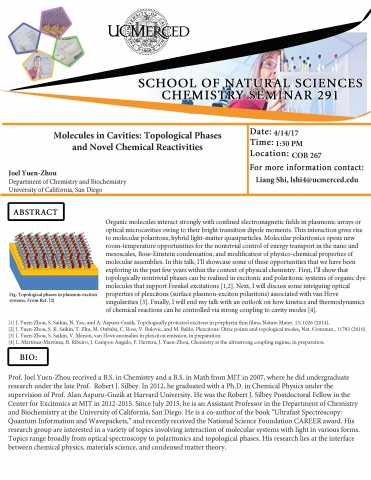Joel Yuen-Zhou, University of California, San Diego
Abstract:
Organic molecules interact strongly with confined electromagnetic fields in plasmonic arrays or optical microcavities owing to their bright transition dipole moments. This interaction gives rise to molecular polaritons, hybrid light-matter quasiparticles. Molecular polaritonics opens new room-temperature opportunities for the nontrivial control of energy transport in the nano and mesoscales, Bose-Einstein condensation, and modification of physico-chemical properties of molecular assemblies. In this talk, I’ll showcase some of these opportunities that we have been exploring in the past few years within the context of physical chemistry. First, I’ll show that topologically nontrivial phases can be realized in excitonic and polaritonic systems of organic dye molecules that support Frenkel excitations [1,2]. Next, I will discuss some intriguing optical properties of plexcitons (surface plasmon-exciton polaritons) associated with van Hove singularities [3]. Finally, I will end my talk with an outlook on how kinetics and thermodynamics of chemical reactions can be controlled via strong coupling to cavity modes [4].




